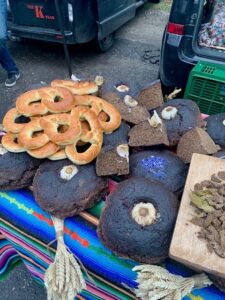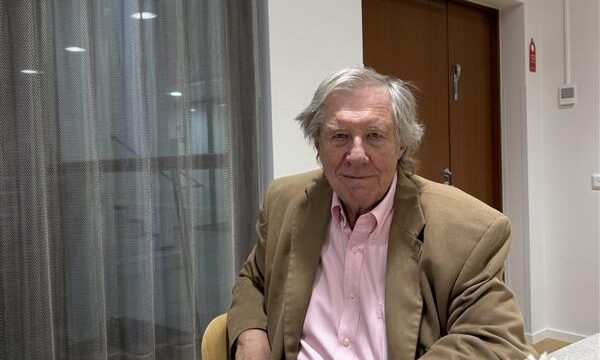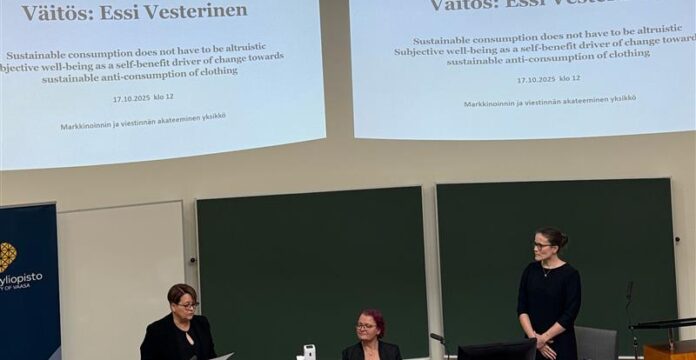What happens when a group of social science researchers go to the field to collect research data? In this blog post, I will reflect upon our ethnographic data collection trip to explore the organization of REKO network in Latvia. REKO is an alternative (local) food network originating from Finland, but operating nowadays in many countries all over the world.
Our two-day field trip took us to the city of Valmiera in October 2024. Just like ethnographers do, we carefully planned the visit in advance trying to ensure we could generate data that align with our research setting. Using ethnographic terms, we aimed for gathering thick descriptions, i.e. long-term and deep reflections about the experiences that people live. In our case, these thick descriptions included observations of people’s doings and sayings in the REKO markets, photographs of the marketplace and its material elements, as well as interview data collected from people on the site. We were happy to receive support from our local contact person who helped us navigate various practicalities. While planning the trip, we were full of inspiration, but also a little bit worried of how things would go in practice. Would we find enough informants to interview? Would our recorders function properly? How would we overcome potential language barriers given that none of us understood Latvian? However, as we realized that we cannot control the real-life research context, we decided to go with the flow and improvise when necessary!
And indeed, some improvisation was needed. While all of us had previously visited REKO pick-ups in Finland and in Sweden–giving us preliminary understanding of the marketplace–we quickly realized that we need to adapt to the situational context and remain reflexive about our own mindset. Reflexivity in ethnography requires us to unlearn what we think we know. For example, we were prepared for a short-term pick-up event lasting about 45 minutes, but we soon discovered that in Valmiera people arrive early and stay much longer on the site. Moreover, we learned that many consumers decide on their purchases at the marketplace, making pre-orders on Facebook less regulatory compared to Finland and in Sweden. These practices affect to the product placements which were very aesthetically pleasing and designed to encourage customers to circle in the area to explore the array of delicious foods on display. Multi-sensory aspects and embodied data collection were truly present on the field. We could touch, taste and smell the local food products and sense the good atmosphere running through the marketplace.

Reflexivity was insisted also during the interviews. We approached people together with our local collaborator, which made the situation more comfortable for both us and the interviewees. While we encountered some language barriers we managed to overcome them pretty well. A very important thing was to show sensitivity when making the interviews. Eventually, we decided to abandon our initial purpose of conducting in-depth interviews. Instead, we aimed for short conversations with local people in a relaxed manner. Our preference was to gain an understanding of what is relevant in the marketplace and why people act the way they do
After the field trip, we familiarized ourselves with the empirical materials. We reviewed the notes and photographs, and transcribed the interview recordings. As I write this blog post, we have conducted initial analyses and discussed our preliminary findings within the research team – we are beginning to uncover what REKO is about. We are thrilled to share our findings with both academics and practitioners. Equally important, we are committed to discuss our findings with our Latvian collaborators. Giving back to the studied community lies at the heart of ethnographers.
With exploratory greetings, Hanna
P.S. This post was inspired by marketing professor Joonas Rokka’s and Lionel Sitz’ article “Why teach ethnography to managers (in the big data era)?” published in The Conversation. You can read it here
This blog post was written by Hanna Leipämaa-Leskinen who works as an associate professor of marketing. She leads the research project “Organizing REKO” at University of Vaasa. The project explores REKO local food system in Finland, Sweden and Latvia. The blog text was originally published on the project’s webpages.




